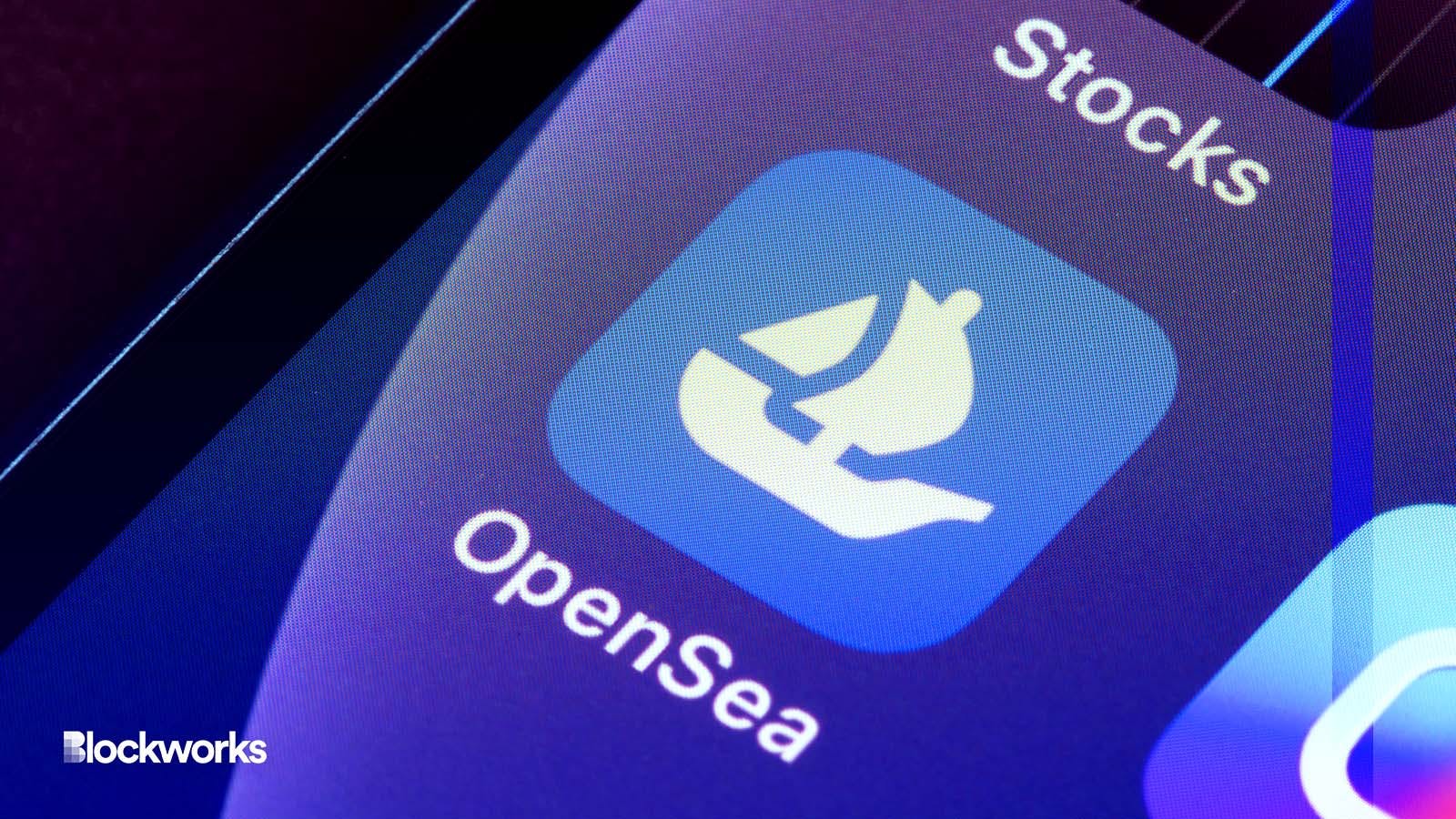As OpenSea Flexes Marketplace Influence, Some Users Are Worried
Various OpenSea accounts are being disabled without clear explanation

Tada Images/Shutterstock.com modified by Blockworks
Twitter users are reacting to OpenSea’s continual policy changes and what appears to be a haphazard verification processes. Recently, the marketplace flip flopped on its stance on creator royalties before ultimately deciding to continue enforcing creator fees on all existing collections.
Now, users are pointing out that OpenSea is verifying certain accounts while disabling others in an “unfair” way.
One user named nirozin tweeted that all of his wallets were suddenly disabled on OpenSea “after 2 years of trading for a total of million of $ and thousands of NFT’s on several wallets.”
When he emailed customer support, the OpenSea Customer Experience team responded that his accounts were found to have violated their terms of service, but did not offer an additional explanation.
Nirozin’s collection is one of reportedly many smaller creators that may have been having issues getting verified.
Others claim that OpenSea has been “stonewalling” verification and “manually removing the request verification button” for certain collections, naming OnChainBirds as an example.
Additionally, users are commenting on another move that OpenSea announced on Thursday regarding its stance on enforcing creator royalty fees. In a Twitter thread, it said it will transfer ownership of the list of Ethereum marketplaces blocked for “not respecting creator fees” over to a multi-signature collective.
The collective is called Creator Ownership Research Institute (CORI) and includes OpenSea, Nifty Gateway, Zora, Manifold, SuperRare and Foundation as members that will enforce the use of the blocklisting “Operator Filter” tool that OpenSea introduced last month.
It supports what is known as the Royalty Registry, an on-chain contract that helps marketplaces properly allocate royalty amounts to the right recipients. CORI is making it possible for contracts that did not originally support on-chain royalties to easily add them.
One user said it gives the impression of a “cartel” and it would “better if it was controlled by respected artists and not by the marketplaces.”
Another user warned “that if sufficient % of the cartel are forced to implement any unpopular feature they will try to force everyone to do it to avoid other exchanges from taking over their market share.”
OpenSea claims it is acting out an “existential imperative for the space to preserve creator fees.” However, this move comes at a time when NFT marketplaces are split between defending the royalty scheme for NFT creators and ensuring they keep their market share of users and sales volume. Experimenting with various policies may have come at the cost of its customers.
Nevertheless, OpenSea remains the most used marketplace for Ethereum NFTs. It recently stated that creators on the platform earned over $1 billion in 2022 directly from creator fees on secondary NFT sales, not including sponsorship revenue, engagement incentives or grants.
Get the news in your inbox. Explore Blockworks newsletters:
- The Breakdown: Decoding crypto and the markets. Daily.
- 0xResearch: Alpha in your inbox. Think like an analyst.






